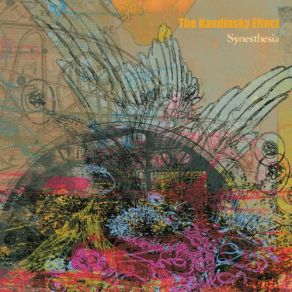Synesthesia
Download links and information about Synesthesia by The Kandinsky Effect. This album was released in 2013 and it belongs to Electronica, Jazz, Avant Garde Jazz, Alternative Rock genres. It contains 11 tracks with total duration of 48:59 minutes.

|
|
|---|---|
| Artist: | The Kandinsky Effect |
| Release date: | 2013 |
| Genre: | Electronica, Jazz, Avant Garde Jazz, Alternative Rock |
| Tracks: | 11 |
| Duration: | 48:59 |
| Buy it NOW at: | |
| Buy on Amazon $8.99 | |
| Buy on iTunes $9.99 | |
| Buy on iTunes $9.99 | |
Tracks
[Edit]| No. | Title | Length |
|---|---|---|
| 1. | Johnny utah | 6:23 |
| 2. | M.C. | 4:00 |
| 3. | Cusba | 5:30 |
| 4. | WK51 | 4:49 |
| 5. | Walking... | 4:01 |
| 6. | Brighton | 4:18 |
| 7. | Left Over Shoes | 4:31 |
| 8. | Lobi Mobi/ Hotel 66 | 3:04 |
| 9. | Mexican Gift Shop | 4:22 |
| 10. | Lars Von Trier | 3:28 |
| 11. | If Only | 4:33 |
Details
[Edit]Transatlantic sax-bass-drums trio the Kandinsky Effect are adept at mixing creative jazz and electronics without the electronics getting in the way. It helps that saxophonist Warren Walker and bassist Gaël Petrina (based in Paris) and drummer Caleb Dolister (based in New York) leave plenty of room in their arrangements for laptop and effects — if you stripped away the electronics, the sound would be uncluttered and even sparse. Walker's melody lines (he's the main composer) and phrasing are often long, drawn out, and not exceedingly complicated; this particular style might invite lesser musicians to lay the electronics on thick, filling in all the empty spaces and not allowing the music to breathe. Thankfully, Walker and company vary the program considerably from track to track, sometimes giving the electronics a prominent role and other times using effects to color rather than dominate the music, and also applying treatments in a way that paints compositional changes in bold relief. Leadoff track "Johnny Utah" is one of the electronics-heavy numbers, starting with Petrina's funky bassline and Dolister's crisp and insistent timekeeping drums beneath Walker's simple melody/riff, which gets some echoey treatment as the bass transitions into a deep electro throb; the group is alternately rattling and balladic before launching into one of the album's more outré jams, with the signal from Walker's wild solo split from the center of the stereo field into a left-channel doppelgänger burning away in an alternate harmonic universe.
Ghostly washes of sound echo and float from Walker's sax through the backdrop of "M.C." as Petrina lays down a deep pulse and Dolister cleanly but powerfully drives the groove; Dolister avoids overuse of cymbals and thereby lets even subtle sonic colorations be fully heard. There is hardly a cymbal anywhere on the album's prettiest tune, the midtempo yet rhythmically insistent "Brighton," complete with glockenspiel accents on the melody, while on the balladic "Cusba," cymbal washes take the place of electronics in an intimate excursion with only the subtlest hint of effects. Walker's sax echoes provide a spacy contrast to Dolister's double-timed artificial-sounding drum fills on "Wk51," while "Walking..." employs, perhaps ironically, some of the disc's trickiest time signature shifts, not to mention Petrina splitting his bass signal to create a dose of deeply skewed funk. There are enough effects on "Left Over Shoes" to suggest a rocket to Planet Gong, while the following "Lobi Mobi/Hotel 66," in a complete change of pace, finds Walker offering up some of his loveliest tenor playing, a gift to jazz rather than electronica fans, over straight bass-and-drums backing, sans effects. Featuring some of Petrina's dirtiest bass, "Mexican Gift Shop" is essentially a two-parter, bringing in sustained otherworldly ambient treatments halfway through as an effective compositional device. However, the biggest surprise of all might be the Ornette-ish "Lars Von Trier," another unadorned trio number whose unity of melody and free rhythm makes its own statement on artistic iconoclasm.